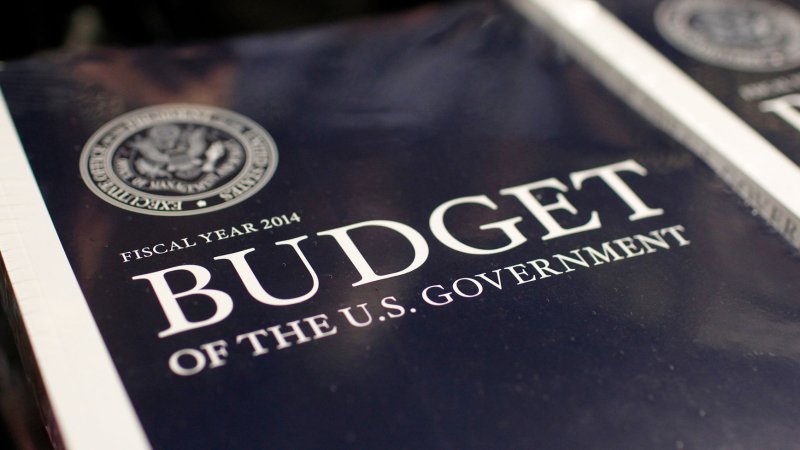The president's Fiscal Year 2014 Budget proposal is delivered to the Senate Budget Committee and distributed to staff, in Washington DC on April 10, 2013. UPI/Molly Riley |
License Photo
WASHINGTON, May 14 (UPI) -- The U.S. budget deficit is shrinking faster than thought, falling to $642 billion from the $845 billion projected in February, number-crunchers said Tuesday.
The Congressional Budget Office said the unanticipated $203 billion cut to the current-year shortfall -- a 24 percent drop from just three months ago -- comes from higher-than-expected individual and corporate tax payments and $95 billion in expected dividend payments from mortgage-finance companies Fannie Mae and Freddie Mac.
Both private companies were bailed out by taxpayers in 2008 and have been under temporary government control since.
The shrinking budget deficit has nothing to do with $85 billion in mandatory, across-the-board budget cuts, known as sequestration, that went into effect March 1 or with tax increases Congress passed in the winter to avoid the so-called fiscal cliff, the non-partisan CB O, which provides economic data to Congress, said.
Those policy changes were already worked into the February forecast, it said.
The $845 billion in red ink in February would have put the deficit at 5.4 percent of economic output. The new projection would put the deficit at 4 percent of gross domestic production.
The deficit was 7 percent of the budget in 2012 and 10.1 percent in 2009.
The improving deficit picture will likely continue until 2016, when spending picks up as a share of the economy and revenue levels off, the CBO said.
At that point, Medicare and Social Security are expected to start taking an even larger share of the budget, with Social Security and government healthcare spending hitting an expected $3 trillion, or half the budget, by 2023, the office said.










